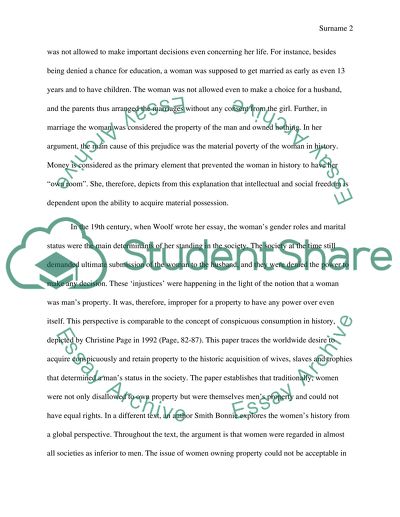Cite this document
(“Shakespeares Sister by Virginia Woolf Essay Example | Topics and Well Written Essays - 1250 words”, n.d.)
Retrieved from https://studentshare.org/literature/1664535-causal-analysis-essay-response-to-shakespeares-sister
Retrieved from https://studentshare.org/literature/1664535-causal-analysis-essay-response-to-shakespeares-sister
(Shakespeares Sister by Virginia Woolf Essay Example | Topics and Well Written Essays - 1250 Words)
https://studentshare.org/literature/1664535-causal-analysis-essay-response-to-shakespeares-sister.
https://studentshare.org/literature/1664535-causal-analysis-essay-response-to-shakespeares-sister.
“Shakespeares Sister by Virginia Woolf Essay Example | Topics and Well Written Essays - 1250 Words”, n.d. https://studentshare.org/literature/1664535-causal-analysis-essay-response-to-shakespeares-sister.


